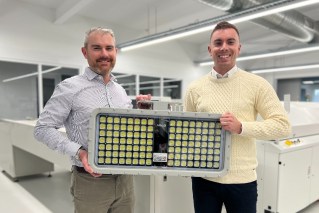Queensland business leadership panel: Predictions for 2021
In this regular feature, InQueensland asks some of the state’s business leaders for their thoughts and learnings about the challenges currently confronting business.

In today’s edition of Queensland Business Leaders Panel, we ask for predictions for 2021 – and what are the key moves businesses need to make to ensure they’re in the best possible shape to take advantage.
Paul Spiro
Chairman, Gadens

Unfortunately, 2021 will be a stressful year for many businesses in Queensland. In particular, many small to medium businesses may struggle to find economic traction after experiencing the pandemic’s seismic effect in 2020. Also, there will be enormous mortgage stress on many homeowners after some financial institutions’ moratorium on deferred interest expires, especially in circumstances where some homeowners may find themselves unemployed or underemployed. Anecdotally financial institutions and insolvency practitioners are gearing up for a busy 2/3 year period, which many think will commence in the 4th quarter of this financial year.
There is some good news for those that may be adversely affected. For example, Brisbane’s Lord Mayor Adrian Shrinner and his team have a razor-sharp focus on assisting small to medium businesses with a range of support packages and the like, which will help educate and revitalise firms across the length and breadth of Brisbane. There is also a genuine commitment by financial institutions on the mortgage front, including all of the big 4 banks, to assist businesses and homeowners under actual financial stress. Communication with those institutions is the key to ensuring the best possible outcomes.
Professor Fabrizio Carmignani
Dean (Academic) Griffith Business School
 Predictions for 2021 – and three things businesses need to do to ensure they’re in the best possible shape to take advantage.
Predictions for 2021 – and three things businesses need to do to ensure they’re in the best possible shape to take advantage.
Even with uncertainty around the availability of a coronavirus vaccine, the expectation is the pace of economic activity will rebound in 2021. Global supply chains will progressively re-start and domestic production will partially recover after the recession of 2020. On the other hand, the labour market will remain weak and unemployment will not return to its pre-coronavirus level next year. In fact, unemployment typically shows quite a high degree of stickiness, meaning that once it increases, reducing it to pre-crisis level takes considerable time.
Against this background, three priorities for Australian business emerge:
1. Invest in people. Retaining well-trained workers now will make it easier for businesses to take advantage of the recovery in 2021. Human capital is a key asset for a business; if depleted now, then it will have to be reconstituted in 2021 through costly recruitment and training. The winning strategy in the medium term is to preserve this human capital now in order to deploy it in full next year when conditions improve
2. Invest in innovation. A changing and ever more competitive environment requires business to revamp their entrepreneurial spirit and be prepared to invest in innovation. This is a priority for Australia, irrespective of coronavirus, if we want to ensure the long-term prosperity and welfare of our community. Strong partnerships with and support from the government is required for businesses to be put in a position research and develop new ideas, new products, new services.
3. Invest in the community. It is in the interest of business to join forces with other stakeholders (including the government, costumers, and universities) in order to promote innovation. Two-way relationships with universities and research institutions is particularly important and, so far, rather underdeveloped in Australia.
LGAQ Lead – Trade and Investment, Paul Cranch
 Looking for opportunities to attract investment and stimulate local economies is front of mind for all levels of government right now as we navigate the COVID-19 pandemic. Queensland councils play key role in the economic development of their local communities, through both attracting and retaining investment.
Looking for opportunities to attract investment and stimulate local economies is front of mind for all levels of government right now as we navigate the COVID-19 pandemic. Queensland councils play key role in the economic development of their local communities, through both attracting and retaining investment.
As Leo Clancy from IDA Ireland – Ireland’s world leading inward investment promotion agency- says, investment attraction is a contact sport.
Focussing on aftercare makes all the sense with 50 to 70 per cent of investment coming from reinvestment, as found by the World Association of Investment Promotion Agencies.
Most investment promotion agencies are only allocating between 10 to 20 per cent of their budgets to aftercare, however.
This, as Stefan Kratzsch from the United Nations industrial Development Organisation identifies, is a big imbalance.
“Investment aftercare is of paramount importance, particularly during times of a global crisis,” Mr Kratzsch has said.
Aftercare involves ensuring a lot of contact with a lot of local businesses to assess their business plans and to help facilitate growth.
Local government is particularly well placed to do this work as councils are in constant contact with their local businesses.
However, improvements can be made if all three levels of government work together on a national strategy to coordinate efforts to enhance investment attraction with facilitation and aftercare priority.
The world of investment is a competitive space with big incentives being offered here and around the world.
Simply keeping in touch and engaging consistently with your local businesses and investors can be the most effective and impactful way to grow investment, especially during these tough COVID times we find ourselves currently in.
Geoff Rodgers, Chairman of Rowland

I think it’s reasonable to expect the subdued economic times we are experiencing now will likely continue into next year, particularly the first half of the calendar year. We need to remember this isn’t a “traditional”, fiscally-led recession — first and foremost, it is a health crisis. So while there are still challenging times ahead, economic and fiscal fundamentals are generally okay and hopefully we will see some economic momentum return in the second half of the calendar year, which will lead to better performance from 2022 onwards.
The three things I believe businesses can do in 2021 to put them in the best position for a potential economic uplift in 2022 are:
1. Get the balance right and adapt your business to the “new way” of doing business — this includes everything from the workplace (office and work from home), to meetings and organisational culture
2. Be pragmatic about how you embrace digital technology, but do embrace it — use technology in a way that works best for you and don’t be swayed to adopt every technology trend if it’s not a fit for your business
3. Take a good look around and be aware of new and evolved markets, and how they might impact your business — one business’ pivot may become your new competitor.
Meredith Staib, CEO Royal Flying Doctor Service (Queensland Section)
 I believe 2021 will undoubtedly prove to be another challenging year for all sectors of business, and not-for-profits will not be immune to these challenges. To ensure long term sustainability, all organisations will need to challenge and change the way they operate, while remaining commercially astute.
I believe 2021 will undoubtedly prove to be another challenging year for all sectors of business, and not-for-profits will not be immune to these challenges. To ensure long term sustainability, all organisations will need to challenge and change the way they operate, while remaining commercially astute.
This will be especially important for the Royal Flying Doctor Service (Queensland Section) as we move towards our centennial. We have a proud history of serving Queenslanders and wish to continue to provide world-class aeromedical service well beyond our 100 years of operation.
Next year, I foresee more changes in the way we work, the way we travel and the way we engage with one another. I do anticipate rapid advancements in technology as a result of the pandemic, and the continued emergence of innovative systems and platforms to aid the way we operate.
What are the three things businesses need to do to ensure they’re in the best possible shape to take advantage?
1. Be ready to adapt. Through the pandemic, we have learnt that organisations and people are willing and able to change. Adaptability and flexibility will remain key.
2. Embrace the change and challenges. It has been a difficult year but there is a distinct advantage in being the first to move. There will continue to be considerable opportunity for those that move first.
3. Stay aligned to the values and purpose of your organisation. Be willing to pivot, but don’t lose sight of who you are.

















